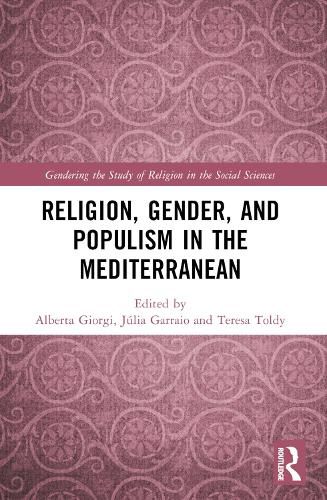Readings Newsletter
Become a Readings Member to make your shopping experience even easier.
Sign in or sign up for free!
You’re not far away from qualifying for FREE standard shipping within Australia
You’ve qualified for FREE standard shipping within Australia
The cart is loading…






This book offers a systematic and comparative analysis of the intersections of religion and gender in times of populism across the EU-Mediterranean. The chapters explore tensions and issues related to religion and gender in nations including Portugal, Italy, Croatia, Bosnia-Herzegovina, Serbia, Greece, Turkey, and Israel/Palestine. Shifting attention from the European Union to the Mediterranean area allows the inclusion of countries whose history is significantly interwoven, taking into account the legacies of colonialism, the effects of post-colonialism, and the role of the EU in relation to gender-related issues in particular. The volume investigates not only country-specific cases but highlights similarities and differences in the region and aims to understand how the interconnections influence the issues at stake. It draws together countries with non-Christian majoritarian religions, with different political regimes, and where feminism and women's movements have different shapes, histories, and relationships with religion. The book will appeal to scholars interested in the entanglements of gender, religion, and populism from a range of disciplines including anthropology, sociology, political science, religious studies, and gender studies.
$9.00 standard shipping within Australia
FREE standard shipping within Australia for orders over $100.00
Express & International shipping calculated at checkout
This book offers a systematic and comparative analysis of the intersections of religion and gender in times of populism across the EU-Mediterranean. The chapters explore tensions and issues related to religion and gender in nations including Portugal, Italy, Croatia, Bosnia-Herzegovina, Serbia, Greece, Turkey, and Israel/Palestine. Shifting attention from the European Union to the Mediterranean area allows the inclusion of countries whose history is significantly interwoven, taking into account the legacies of colonialism, the effects of post-colonialism, and the role of the EU in relation to gender-related issues in particular. The volume investigates not only country-specific cases but highlights similarities and differences in the region and aims to understand how the interconnections influence the issues at stake. It draws together countries with non-Christian majoritarian religions, with different political regimes, and where feminism and women's movements have different shapes, histories, and relationships with religion. The book will appeal to scholars interested in the entanglements of gender, religion, and populism from a range of disciplines including anthropology, sociology, political science, religious studies, and gender studies.